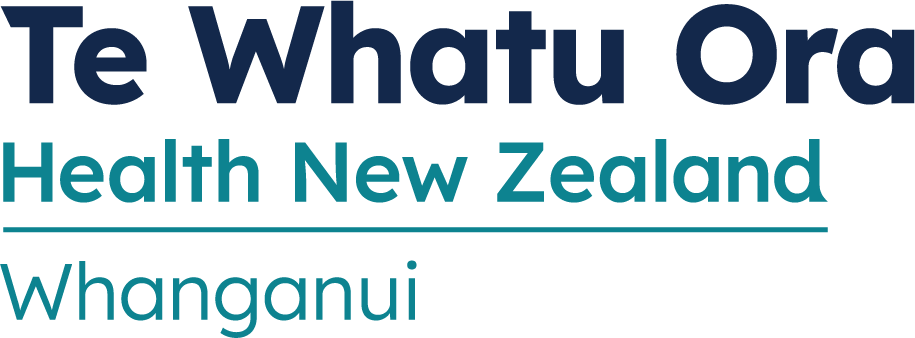
Kaua e rangiruatia te hāpai o te hoe; e kore tō tātou waka e ū ki uta
Do not lift the paddle out of unison or our canoe will never reach the shore
Whakapapa - Overview
In 2013, the DHB Board received the recommendations from the independent review of the WDHB Māori Health Strategy Huarahi Oranga 2007-12. The review identified a number of areas where the DHB could improve the way it provides services to Māori whanau. The review also recommended that the DHB put more focus on building Māori workforce capacity and support for tamariki and rangatahi to become interested in pursuing a career in health.
In considering the review recommendations the Board wanted to understand how the Whanau Ora: Taskforce on Whanau-Centred Initiatives Report 2010 could influence the DHBs approach to strategic decision making and care delivery. The Board commissioned a report from Dr Mihi Ratima – The Whanau Ora Concept Report 2013. This report identified four relevant themes:
- Adoption of whānau/family-centred approach as the foundation for all that we do – governance, management, service planning, development and delivery for all patients and their families
- Strong leadership - leading and championing the change - top down and bottom up
- Workforce development - increase workforce development and provide more support for staff to increase their knowledge/understanding of Māori tikanga traditions and values to be more confident when caring for Māori whānau
- Culturally responsive services - Māori whānau/families with high health needs require culturally responsive services, guidance and navigation through the health system so they can self-determine their journey confidently.
In July 2013, the WDHB Board endorsed Whanau Ora – whānau/family-centred care as a core approach, alongside the approved recommendations from the Huarahi Oranga Review and the Whanau Ora Concept Report. This approach aligns with Pae Ora (healthy futures) which is the aim of the MoH Maori Health Strategy He Korowai Oranga 2014.
Importantly the DHB Board recognises that by adopting the Whanau Ora philosophy as a way of delivering care will benefit all of the WDHB community Māori and non-Māori.
Te Hau Ranga Ora
From all corners of the land the four winds converge into the valley, intertwining, emerging as one together; you, me, us and we; working in unity to achieve the best outcome for whānau/families.
(This name was given to the DHB by WDHB kaumatua John Niko Maihi.)
Te Hau Ranga Ora encapsulates the DHB Board's commitment to Māori health from service delivery to patients and their whānau to governance and its partnership with Hauora A Iwi , the Iwi Relationship Board. Te Hau Ranga Ora leads the following important functions:
- Māori cultural guidance and support from kaumatua and kuia
- Services (haumoana navigator) to patients and their whānau and families (24 hours, 7 days a week service)
- Haumoana and kaitakitaki (nurse manager) walking alongside staff colleagues to assist and guide them when caring for Māori whanau
- Implementation of polices and guidelines that embrace tikanga Māori
- Māori cultural education and support to DHB staff
- DHB Māori workforce development
- Planning and contracting community based kaupapa Māori services
- DHB strategic and executive leadership, monitoring achievement to Māori health indicators of DHB performance, working with health providers and other sectors
- Governance partnership between DHB Board and Hauora A Iwi, Iwi Relationship Board.
Te Waka - guiding principles and values
Te Waka describes the principles and values that guide the DHB Board, executive, management and staff in their decision making and service delivery that aims to improve the health outcomes of Māori populations and reduce health disparities.
Vision, principles and values
 |
Kotahitanga | Unity, cohesion, sharing vision, working together, trust, relationships, collaboration, Integration. |
| Whanaungatanga | Spiritual wellness, relationships, beliefs, karakia, knowing who you are, what you do, identity, family, whanau, whanau whakapapa, whanau kaupapa, social equity. | |
| Wairuatanga | Spiritual Wellness, relationships, beliefs, karakia, whakamoemiti, ruruku, tohunga rongoa, awa, watea/blessings, blessings. | |
| Aroha | Love, respect, empathy, protections, foundation, relationships, non-judgmental, unconditional, passion, determinants of health. | |
| Tinorangatiratanga | Self-determining, empowering, respectful, proactive, solution focused, choice, adaptability. | |
| Kaitiakitanga | Protection, taking care of people, things, conflict resolution, environmental, awa, maintain values, vision, understanding, absolute protection, keep yourself safe, keeping each other safe. | |
| Rangimarie | Humility, maintaining ones composure, peace, accountability, responsibility, peace, humble, respect. | |
| Mauri | Life essence, animate and inanimate objects have a mauri, tika, pono, balance and universe. | |
| Tikanga Māori | Rights, honest, guiding principles, protocols, guidelines, how we do it, actions, tapu, noa, tika, pono, accountability, as individuals being able to be flexible. | |
| Maori-centred | Improving Māori health outcomes, reducing inequalities for Māori, Māori cultural foundation, whanau centered approach; service approach with a wider relevance and value for all people. | |
| Mana tangata | Dignity, relationships, protection, safety, patient and whānau involvement, respect, acceptance. |
Te Hapai te hoe – Māori Cultural Education Programme
Educating and working alongside our staff so that they can have a sound knowledge and understanding of tikanga Māori and can be confident is caring for Māori whānau/families.
Whare - support for whānau and families
There are times when whānau/families who live outside the Whanganui city limits who have loved ones in hospital are unable to find accommodation at short notice. Te Hau Ranga Ora have facilities that cater for whānau/family needs that are governed by tikanga Māori. Such as:
- Mauri Ora - a whare for emergency and temporary accommodation for out of town whānau.
- Whare Whakatau Mate - a whare to support whānau who experience the sudden loss of a whānau member.
- Te Piringa Whānau - a whare that supports whānau/family-centred care through education, wananga and hui.



